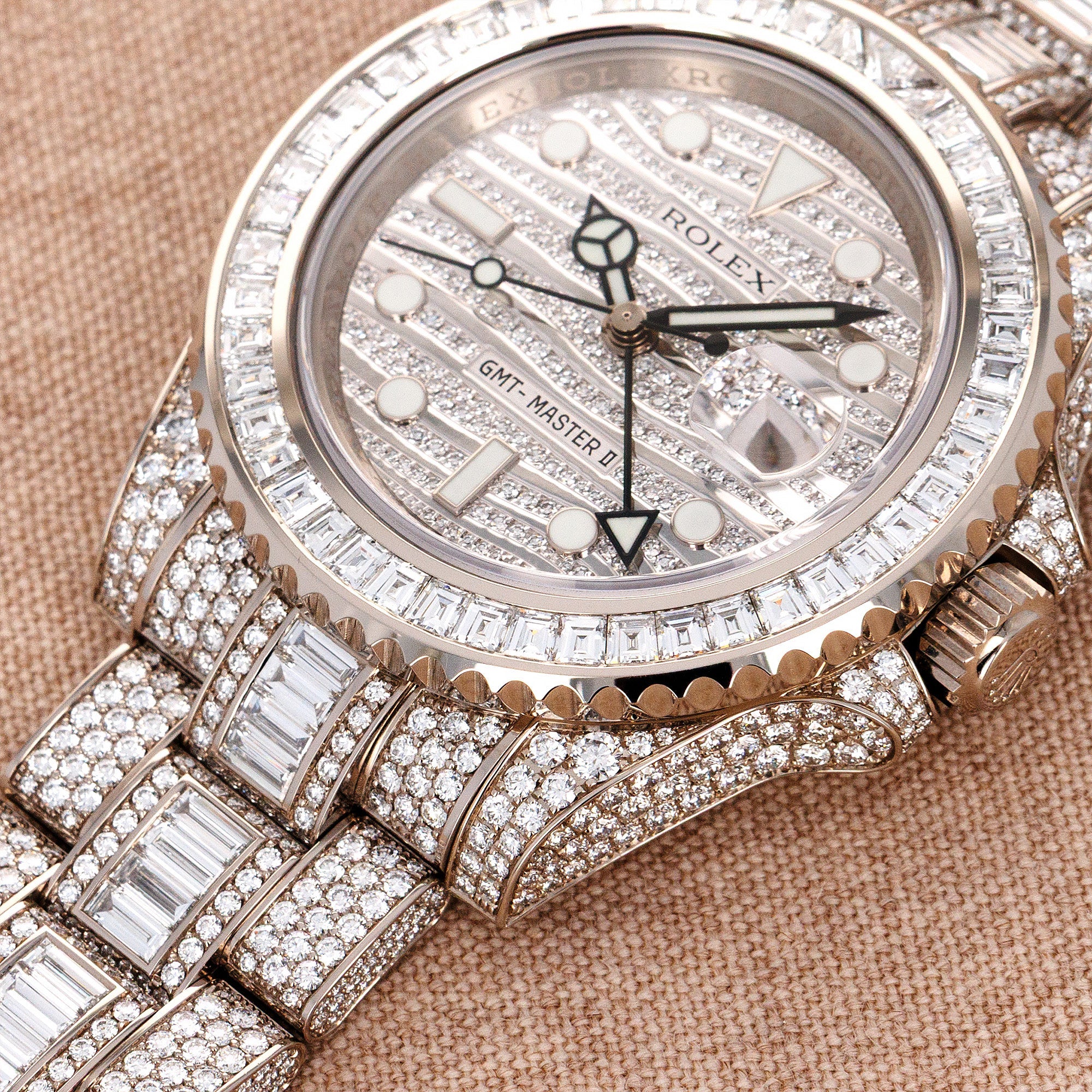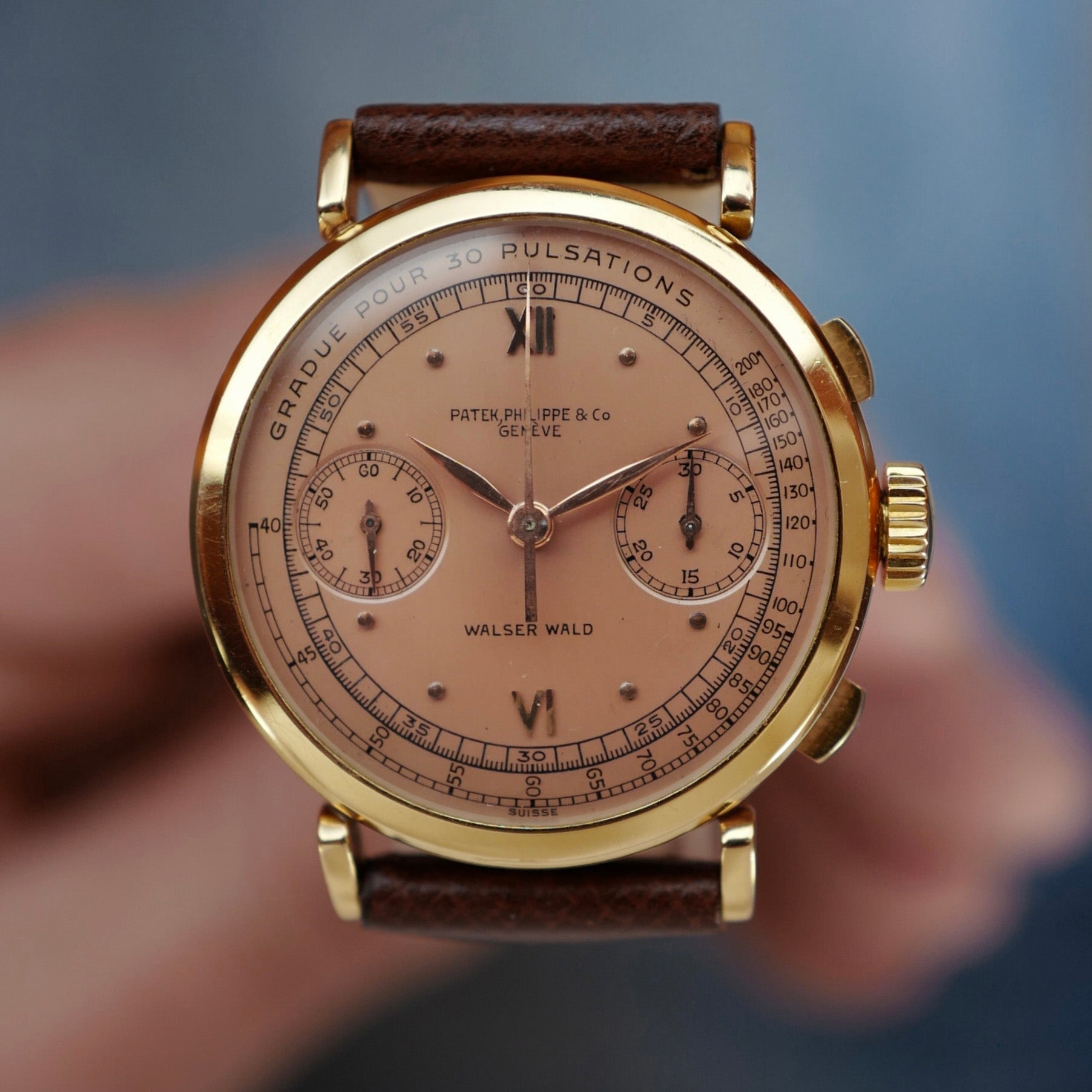The GMT-Master is one of the pillars in the famous Rolex sport watch collection, alongside the Submariner and the Daytona. Easily identifiable with it’s two-colored bezel, the GMT-Master has become an icon among vintage watch collectors, with some owning a number of examples of this same model.
In the 1950’s, the GMT-Master was developed in cooperation with the Pan-American Airlines to assist pilots with telling time in multiple time zones. As flight technology increased, so did flight times and distances, meaning pilots would be crossing through a number of time zones in one flight. To keep pilots on correct time, Rolex created the GMT-Master with a hand that could be set to Greenwich Mean Time (GMT), the standard time used by pilots, while the other hour hand could be set to local time.
The iconic red and blue bezel, often referred to as a “Pepsi bezel,” was made to tell day hours from night hours, red being daytime and blue being evening. As the GMT-Master evolved, it also became available with a red and black bezel, often called a “Coke” bezel, and gold and brown bezel known as a “Root Beer” GMT.
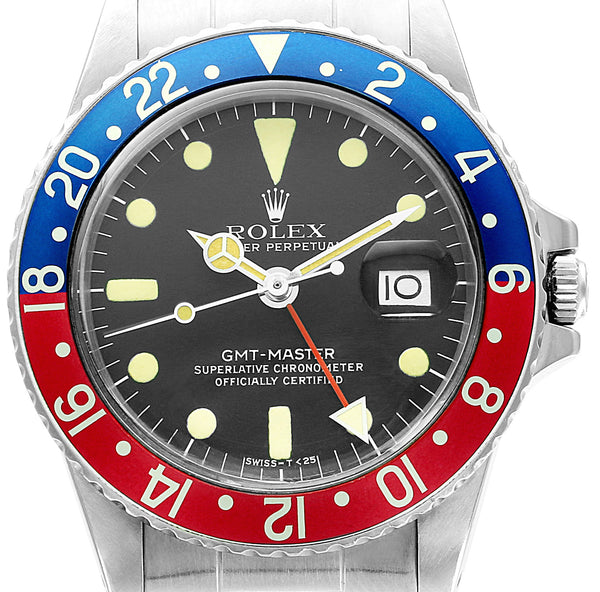
Rolex "Pepsi" GMT-Master, ref. 16750
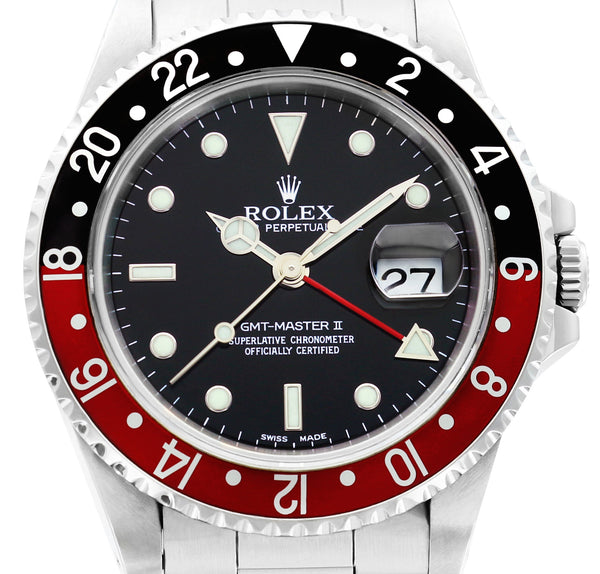
Rolex "Coke" GMT-Master, ref. 16750
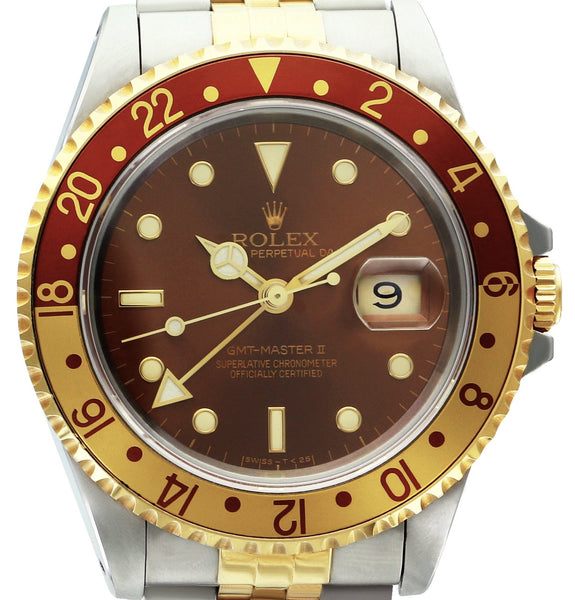
Rolex "Root Beer" GMT-Master, ref. 16713
Rolex GMT-Masters can be found all across pop culture on the wrists of Tom Selleck in Magnum P.I., Pussy Galore in James Bond’s “Goldfinger”, Marlon Brando, Pablo Picasso, Che Guevara, and Fidel Castro. The GMT is an essential part of any vintage Rolex aficionado’s sport watch collection. It’s iconic bezel and style make it a recognizable classic. Shop our GMT-Masters.

Pablo Picasso (L), Tom Selleck in Magnum P.I., Marlon Brando in Apocalypse Now (R)

Khrushchev (L) meeting with Fidel Castro (R) in 1963. Fidel Castro wore two Rolex watches at once, with one being a GMT. With the GMT feature, Castro kept three time zones, Havana, Washington and Moscow.
Evolution of the models:
ref. 6542 - Produced: 1954-1959.
The original GMT-Master. Originally offered with a bakelite bezel, an early plastic, but this material cracked and had durability problems. Many of the original bezels were replaced with aluminum, making bakelite GMT’s rare and very collectable. The ref. 6542 was designed without crown guards. This was the model worn by Pussy Galore in Goldfinger.
ref. 1675 - Produced: 1959-1980
This was the first year the crown guards were introduced, changing the shape of the watch and protecting the crown. Rolex also added the “Superlative Chronometer Officially Certified” imprint to the dial. GMT-Masters up until the late 1960’s had a smaller GMT hand.
ref. 16750 - Produced: 1981-1988
Little changed in this model from the ref. 1675, however Rolex added the quickset feature, allowing the wearer to quickly change the time.
ref. 16760 - Produced 1983-1988
Nicknamed the “Fat Lady” because of it’s larger case that previous models, this model also only came in the red and black “Coke” bezel option. This was also the first GMT-Master II.
ref. 16700 - Produced 1988-1999
This model replaced the ref. 16750, with a new case and sapphire crystal.
ref. 16710 - Produced 1989-2007
This model replaced the ref. 16710, with a slimmer case and some very minor upgrades.
ref. 116710 - 2007-Present
Total redesign of the GMT-Master II, new features are a larger case, ROLEX engraving on inner bezel ring, a ceramic bezel, Maxi dial, anti-reflective cyclopes lens and a trip lock crown.
History of the Brand
Rolex is arguably the most recognized and popular watch brands in the world. The company was established as Wilsdorf & Davis in London, England in 1905 by Hans Wilsdorf and his brother-in-law, Alfred Davis. Their initial business was importing Swiss movements and placing them in high quality cases to be sold in jewelry stores around England. As a result of wartime taxes levied on luxury imports in 1919, the company was moved to Geneva, Switzerland and became the Rolex Watch Company.
After his wife’s death in 1944, Hans Wildorf established the Has Wildorf Foundation to which he left all of his shares in the company, ensuring much of the companies income would go to charity. The brand continued it’s tradition of excellence, release innovative watch designs and setting a high standard for the horological world.
How it Works
The GMT is an automatic or self-winding watch, which means the mainspring is wound by the motion of the wearer’s arm. As the wearer moves about the day, the energy from their movement swings a weight or rotor, which turns on a pivot. The circular movement of the pivot winds the watch just as a manual or wind watch. The GMT hand, which can be identified by the slimmer hand with a triangle at the end, is set to Greenwich Mean Time (GMT).

